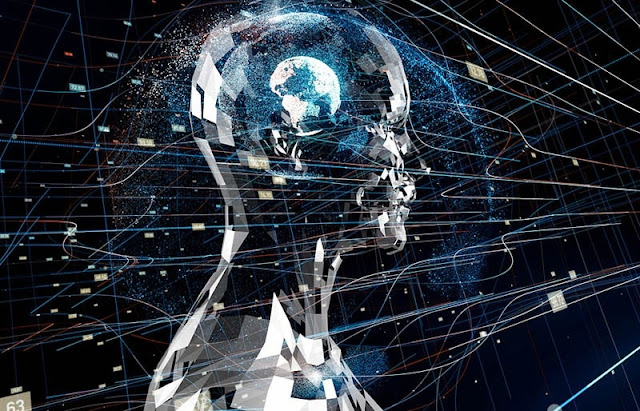Quantum AI: An Exploration of the Intersection of Quantum Computing and Artificial Intelligence - Overview - Michał Opalski / ai-agile.org
Introduction:
The fusion of quantum computing and artificial intelligence (AI) – often termed as Quantum AI – is set to redefine the horizons of computation. As we stand at the cusp of a technological revolution, this interdisciplinary field aims to harness the power of quantum mechanics to elevate AI's potential. But what exactly does this promise entail, and what hurdles lie ahead?
1. The Foundations of Quantum AI:
a. Quantum Computing:
Quantum computers leverage principles from quantum mechanics, the branch of physics studying the universe's tiniest particles. At the core of quantum computing lies the quantum bit or qubit. Unlike classical bits that can be 0 or 1, qubits can be in a superposition of states, representing both 0 and 1 simultaneously. Moreover, qubits can be entangled, a unique quantum phenomenon where particles become interconnected and the state of one particle instantly influences another, no matter the distance.
b. Artificial Intelligence:
AI aims to mimic human intelligence. Machine learning, a subset of AI, allows machines to learn from data. Neural networks, which are algorithms modelled after the human brain, are used for tasks like image recognition and natural language processing.
2. How Quantum Enhances AI:
a. Exponential Speedup:
Quantum parallelism allows a quantum computer to process a high number of possibilities simultaneously. For AI, especially deep learning models with vast parameter spaces, this can significantly expedite training times.
b. Quantum Data Representation:
In quantum systems, data can be represented more densely than classical systems. This compact representation can be especially advantageous for handling large datasets common in AI.
c. Improved Algorithms:
Researchers are developing quantum algorithms that may offer better performance than their classical counterparts. Quantum versions of gradient descent, a popular optimization technique in machine learning, might offer speedups.
d. Enhanced Sampling:
Certain AI tasks, like optimization and sampling, can benefit from quantum computers. Quantum annealers, a type of quantum device, can find global minima more efficiently, aiding complex optimization tasks.
3. Challenges in Quantum AI:
a. Hardware Limitations:
Currently, most quantum computers are "noisy intermediate-scale quantum" (NISQ) devices. They have limited qubits and are error-prone. Achieving fault-tolerant quantum computing is a significant challenge.
b. Quantum Software:
While there's progress in quantum algorithms, a vast portion of AI algorithms can't directly transfer to quantum machines. Adapting and creating new algorithms for quantum computers is a growing field, but it's in its early stages.
c. Decoherence and Error:
Qubits lose their quantum state easily due to external influences, a phenomenon known as decoherence. This leads to computational errors, which researchers are trying to mitigate using quantum error correction techniques. However, these techniques currently require many additional qubits, increasing the resource demands.
4. Ethical and Security Implications:
a. Quantum Supremacy:
Once quantum computers can perform tasks unimaginable for classical computers, they'll achieve "quantum supremacy." This capability, while exciting, brings ethical concerns about its misuse.
b. Cryptographic Threats:
Quantum computers could break current cryptographic techniques, posing a risk to global digital security. Quantum-safe cryptography is being developed, but a complete transition would be challenging.
c. Job Disruptions:
Quantum AI, like AI, could lead to job displacements, especially if the technology matures rapidly. Societies must be prepared for such shifts.
5. Future Perspectives:
Research in both quantum computing and AI is accelerating. Google's announcement of achieving quantum supremacy and advances in neural network models indicate promising developments. Hybrid models, which use both classical and quantum components, might be the immediate next step, bridging the gap between today's technology and a fully quantum future.fraught with challenges, both technological and conceptual.
Conclusion:
Quantum AI is an emerging field that holds tremendous promise. As we continue to advance our understanding of quantum mechanics and improve our quantum computing capabilities, we are likely to see more practical applications and breakthroughs in this realm. However, like all powerful tools, it comes with its set of challenges and risks. Navigating this new frontier requires a balanced view, appreciating the potential benefits while being cognizant of the accompanying challenges.


